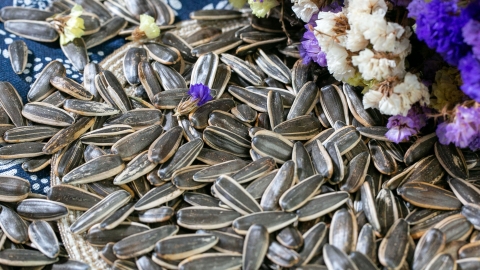Can watermelon and melon seeds be eaten together?
Generally speaking, watermelon and melon seeds can be consumed together, but attention should be paid to controlling the intake amount. The specific analysis is as follows:

Watermelon is rich in water and vitamins, while melon seeds contain abundant protein and unsaturated fatty acids. Consuming moderate amounts of both watermelon and melon seeds together does not produce harmful substances in the body. On the contrary, it can help relieve heat, quench thirst, replenish energy, and provide nutrition for the body.
If an individual has allergic reactions to melon seeds or watermelon, such as rash or difficulty breathing, they should avoid consumption and it is not recommended to consume both together, in order to prevent exacerbation of allergic reactions. In addition, watermelon is cooling in nature; excessive consumption may lead to digestive discomfort symptoms such as diarrhea and abdominal pain. Melon seeds have a high fat content, and excessive consumption may increase the burden on the gastrointestinal tract, causing bloating, constipation, and other issues. Overconsumption of watermelon may affect blood sugar control, while excessive intake of melon seeds may be detrimental to maintaining stable blood lipid levels.
Furthermore, in daily diet, one should maintain balanced nutrition and diverse food intake, avoiding excessive consumption of any single food item, in order to promote overall health.







